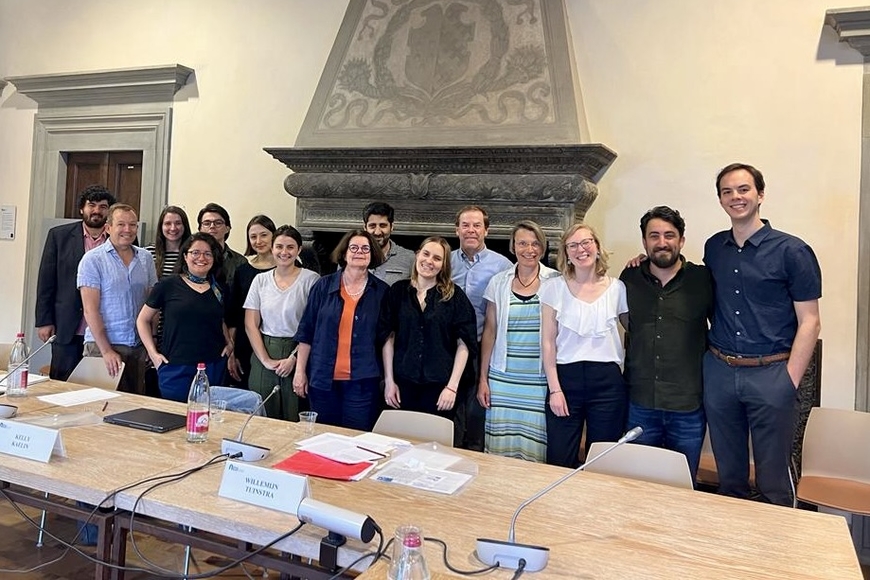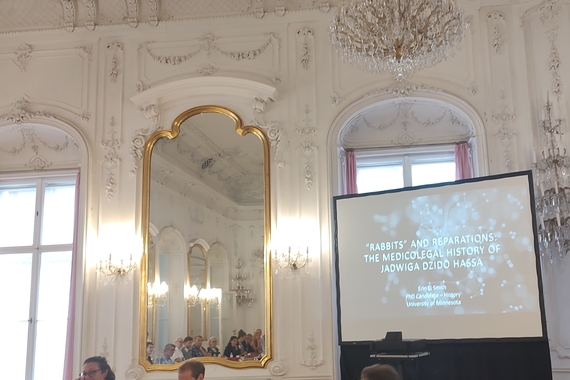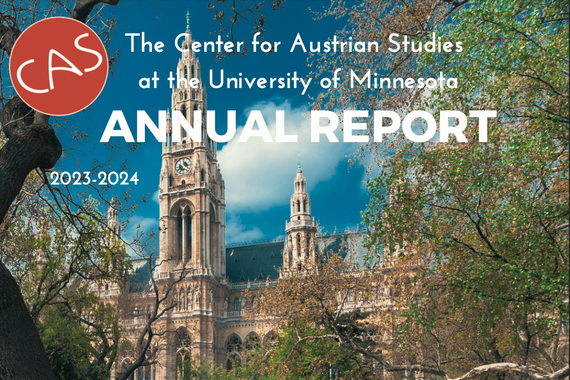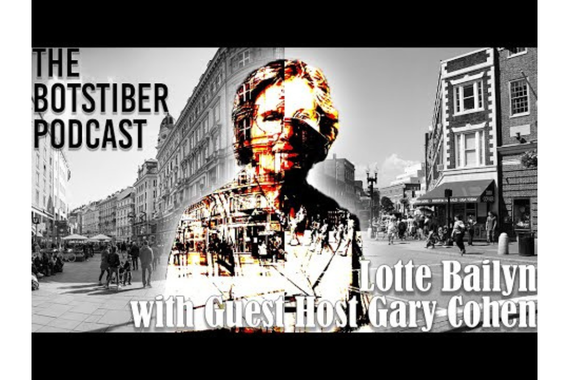CAS Co-hosts Seminar Fellows Program Held in Florence, Italy
On May 23 and 24th, 2023 the European University Institute (EUI), together with the College of Liberal Arts (CLA) and the Center for Austrian Studies at the University of Minnesota, gathered in Florence, Italy to host a workshop entitled, “Religious Dialogue in the Early Modern World.” The workshop brought together doctoral students and scholars from early modern, religious, and Central and Eastern European history.
The two-day conference consisted of opening remarks by the organizers and panel discussions which directly addressed the theme chosen by the EUI and CLA. Participants discussed topics such as “practices and theories of religious coexistence; strategies for religious dialogue; transcultural agents of religious dialogue, their activities, motivations, and identities; processes and products of religious conversion; religious hybridity and syncretism; the intersections of religious dialogue and identities, emotions, senses, and memory; the languages of toleration; conceptual and methodological approaches to the study of religious dialogue and coexistence” (EUI, 2023).
Held annually, the Seminar Fellows Program allows advanced doctoral students specializing in the histories of Central Europe to present their dissertations, receive feedback from other scholars, and exchange ideas with their peers from around the world.
This year’s participants included
Mark Allen, a Ph.D. candidate in history at the University of Cambridge, is researching the boundaries of tolerance and the queen’s and ambassadors’ Catholic chapels in early Stuart London.
Lily Chadwick, a Ph.D. candidate in history at Durham University studying the intersection of regionalism, authority, gender, and race in Britain and early America.
Fikri Cicek, a Ph.D. candidate in history at the University of Minnesota, is specializing in the early modern Middle East from transnational and interconnected perspectives. His research examines how health, religious, political, and family crises generated transregional connections, mobility, and diffusions of knowledge between the early modern Middle East and the wider world.
Anastazja Grudnicka is a Max Weber Postdoctoral Fellow at the Department of History and Civilisation at the European University Institute, Florence. Her research examines, through the lens of cultural, social, and intellectual history, the intersections of religion, identity, and culture in early modern Europe.
Kelly Kaelin is an Assistant Professor of History and Gender Studies at the University of Southern Indiana. She defended her Ph.D. at The Pennsylvania State University in May 2022. Her project, titled ‘Convert, Migrant, Missionary,’ explores the growth of the eighteenth-century Moravian Church from an ethnically German organization from central Europe into a form of Black Atlantic Christianity in the Caribbean through the actions of its female missionaries and enslaved converts.
Howard Louthan is a Professor of History and Director of the Center for Austrian Studies at the University of Minnesota. His scholarship focuses on the intellectual and cultural history of Central Europe.
Rosie Maxton is a doctoral student in the Faculty of History at Oxford University. She holds an MA in Arabic and Medieval History from St Andrews University and an MPhil in Middle Eastern Studies from Cambridge University. Her research explores the spread of the Catholic faith among Eastern Christian communities in the early modern Ottoman Empire, using Mardin (present-day southeast Turkey) in the seventeenth and eighteenth centuries as a case study.
Odile Liliana Panetta arrived in Cambridge to start a PhD in 2018, after completing a BA in History at University College London and an MA in History of Political Thought and Intellectual History at UCL and Queen Mary, University of London. She is broadly interested in early modern Protestant thought, as well as in the intellectual legacies of Renaissance humanism.
Bogdan Pavlish is a Ph.D. candidate in history at Northwestern University. He specializes in the history of early modern Europe with a focus on East Europe and Poland-Lithuania. His research interests include religious and cultural history, the Armenian diaspora, Catholic missions, Eastern Christianity, global exchange, and material culture. His current research project deals with the Armenian diaspora of Poland-Lithuania and its role in mediating between Europe and the Middle East.
Kate Shore is a Ph.D. candidate in history at the University of Oxford, looking at the relationship between the English and German Reformations through the lens of German print. Her project looks at German print about England published between 1547 and 1603, including broadsheets, news pamphlets, printed ballads, martyrologies, and theological tracts, both Catholic and Protestant.
William Theiss is a Ph.D. candidate in history at Princeton University. His research examines the religious, political, and scholarly cultures of early modern Central Europe. His dissertation, entitled “The Registration of Souls: Collective Memory and State Formation in Central Europe, 1517-1945,” tells the story of how church books or Kirchenbücher—the manuscript lists of baptized, married, and dead souls kept since the Reformation in the sacristy of every church across the Holy Roman Empire—went from being sacred objects to state archives.
Sultan Toprak Oker, a Ph.D. candidate in history at the University of Minnesota, Twin Cities. She specializes in the early modern Ottoman Empire with broad interests in intoxicants and drinking establishments, state-society relations, Islamic courts, and the circulation of people and objects. Her current research explores the production, trade, distribution, and consumption of alcohol in seventeenth-century Istanbul, the capital of the Ottoman Empire and one of the largest cities of the early modern world—more particularly Galata, the city’s cosmopolitan district.
Willemijn Tuinstra is a Ph.D. candidate at the University of Leiden, the Netherlands. In 2020 she was awarded the Uitgeverij Verloren/Johan de Witt prize for her MA- thesis ‘Conscience & Connections: Marcellus Franckheim (1587-1644) and his contacts in the Habsburg World on the eve of the Thirty Years War’. Exploring the activities and networks of a Dutch protestant who converted to Catholicism, the thesis discussed how Dutch Catholics in the early seventeenth century, both in the Low Countries and in exile, participated in local and transnational networks to promote and consolidate their faith.



